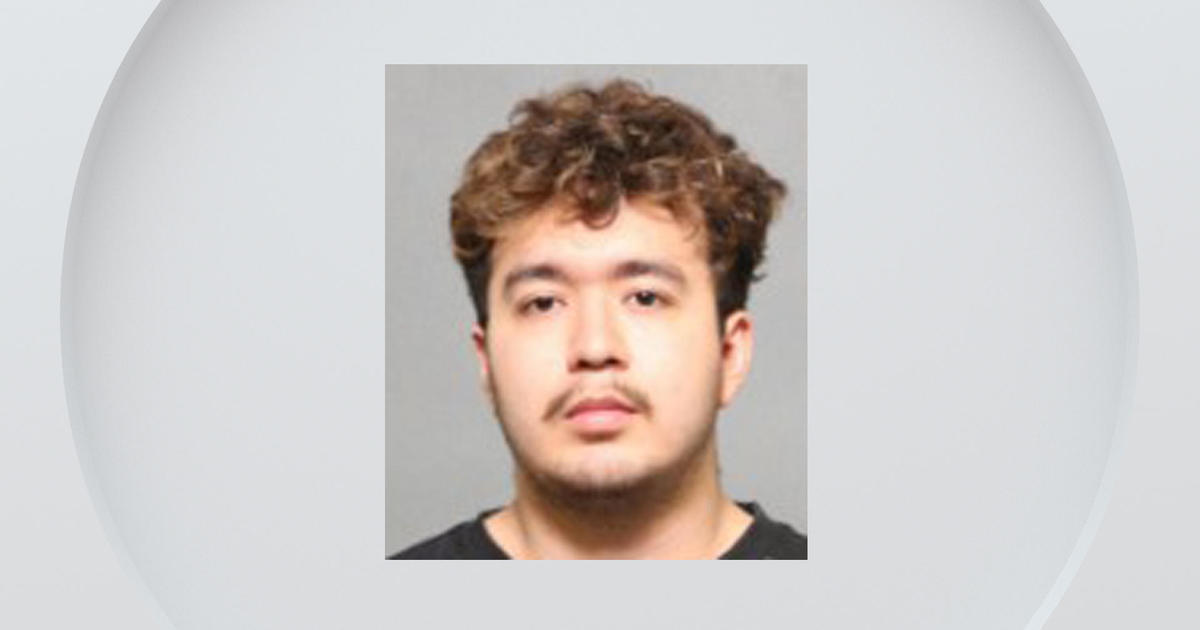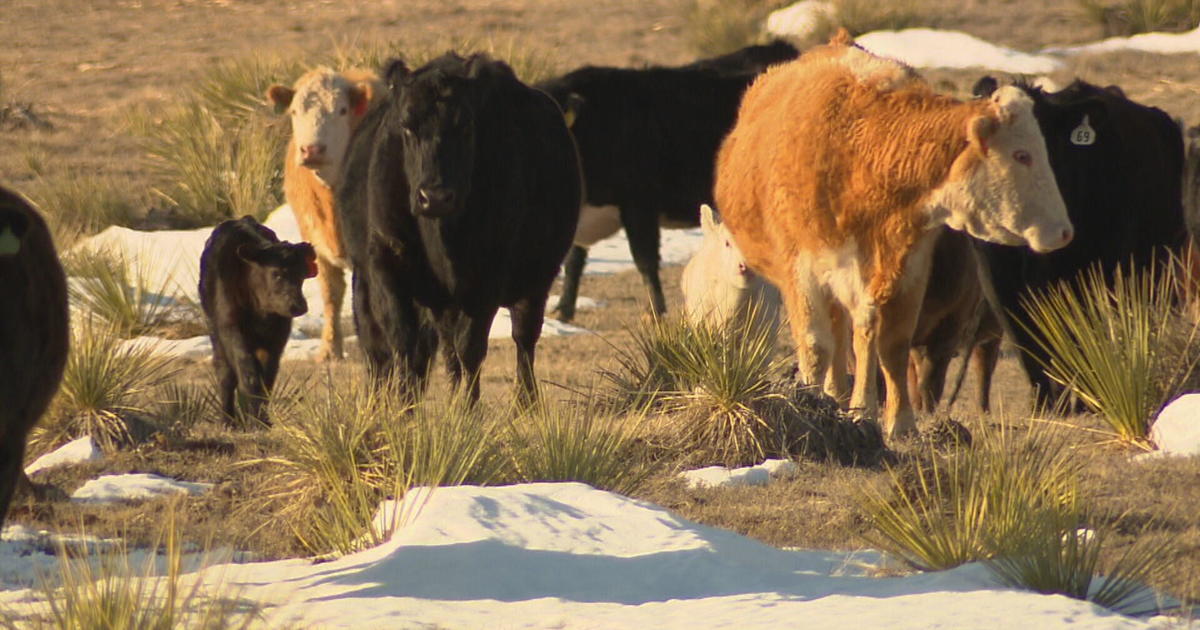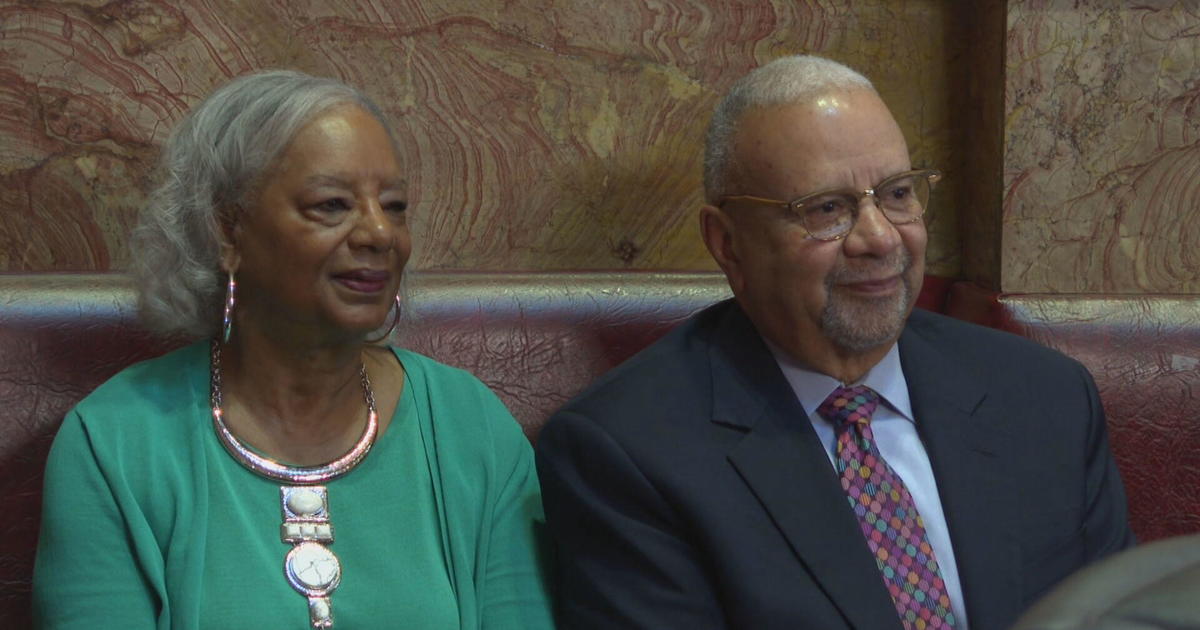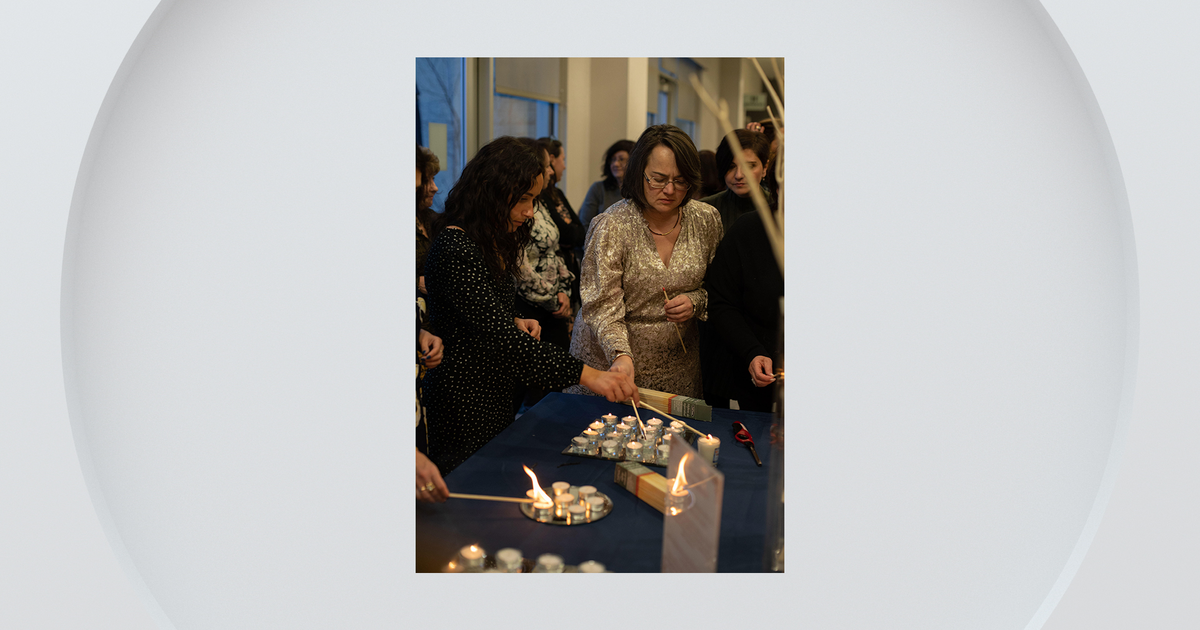No Fear: Blind Skiers Take To Western Slopes
WINTER PARK, Colo. (AP) — Taking a deep breath, Wally Mozdzierz points his skis down the icy slope and leans forward. He hears the snow crunch and feels the contours change beneath him as he glides swiftly down the mountain, his guide following close behind.
The run is exhilarating and adrenaline pumping — common sensations for anyone on the slopes. But for Mozdzierz, it's different. He's totally blind.
"Slight right. Good. Good. Sharp left. Good. Good. Shallow right," the guide barks as Mozdzierz navigates the bumpy run at Winter Park, home to the National Sports Center for the Disabled.
Mozdzierz, 52, of Chicago, was diagnosed with retinitis pigmentosa when he was about 20. He gradually lost his sight over two decades. Thanks to the sports center and similar groups such as the American Blind Skiing Foundation, a Chicago-based nonprofit, he and others who are blind get snow sports lessons — and for some, a way to defeat depression and a sedentary lifestyle that sometimes accompany being blind.
"It's just something I never thought I would do again when I lost my vision," said Mozdzierz, who skis with his eyes closed (he says there's no point in keeping them open). "I think it freaks a lot of sighted people out. I can't see it, so it doesn't freak me out."
"I have no fear."
Mozdzierz has taken some tumbles, hit some trees and fallen 50 feet off a cliff into a pine bough. But he continues to tackle some of the steepest and most challenging terrain, including the toughest-rated double black diamond runs.
"That's what we need, so you almost don't see the disability anymore," said Jim Elliott, one of the foundation's guides. "These kinds of activities are very, very valuable and therapeutic."
Elliott became involved with the group in the 1980s when his daughter Erin, who was born blind, threw down her cane and refused to learn Braille because she was being teased by her classmates. She was 9 years old at the time, and Elliott said he was at a loss of what to do — until he discovered blind skiing.
"All of a sudden, it wasn't Erin the blind kid, it was Erin the skier," he said. "The fact that so many people don't ski, that when you have someone who is blind saying they went on a ski vacation, that's what is so powerful."
The foundation accepts skiers of all ability levels. But one attribute is required of everyone: trust.
Vic Gurganious is a member of the alpine ski team at the National Ability Center in Park City, Utah, which is not affiliated with the Chicago foundation but does similar work. He said he follows his guide "like a religion."
"The guide is the most important part of your equipment," he said. "You can have good skis. You can have good poles. You can have good conditions. But without a decent guide, you're not going to perform."
Gurganious, 52, has extremely poor vision due to albinism. He said he reaches speeds of up to 60 mph while communicating with his guide via a two-way radio built into his helmet. He hopes to make the U.S. disabled ski team and participate in the Paralympic Winter Games in Sochi, Russia, next year.
For Danelle Umstead of Winter Park, that dream couldn't have come at a better time. Umstead, who has retinitis pigmentosa, said her father got her into skiing at a particularly low part of her life.
"I had lost all usable vision. I had lost my mother. I had lost my will to live, and so when my father took me skiing I had probably been in a bad place for a few years," said Umstead. She soon changed, she said, "from a couch potato to a ski bum."
"It still brings joy to my heart and tears to my eyes because the freedom was just there immediately," said Umstead, 40. "It just was the beginning of my life. That's when I started living my life."
With her husband as her guide, Umstead won bronze medals in the downhill and Super-combined events at the 2010 Paralympic Winter Games in Vancouver.
"When the man put the medal around my neck and said, 'You made your country proud,' my heart sunk and my neck sunk because the medal weighed so much," she said. "As the tears were falling, I just was like, 'This is what we've been working so hard for. This is everything I believed I couldn't be, and this is just the beginning of everything I want to be."
By Thomas Peipert, AP Writer (© Copyright 2013 The Associated Press. All Rights Reserved. This material may not be published, broadcast, rewritten or redistributed.)



